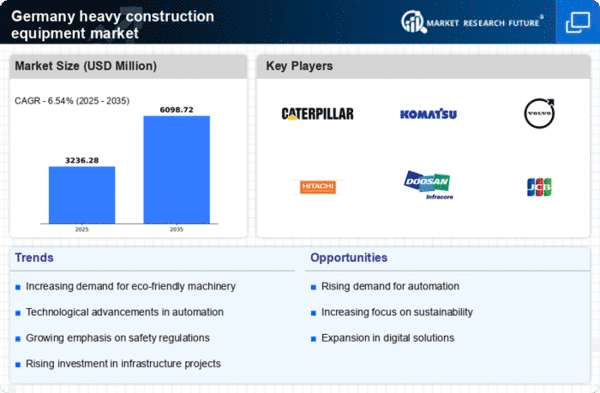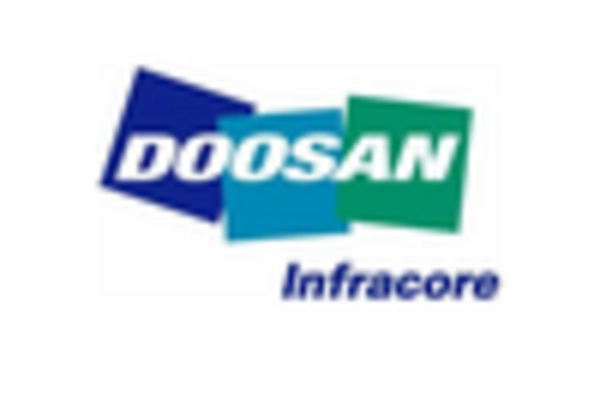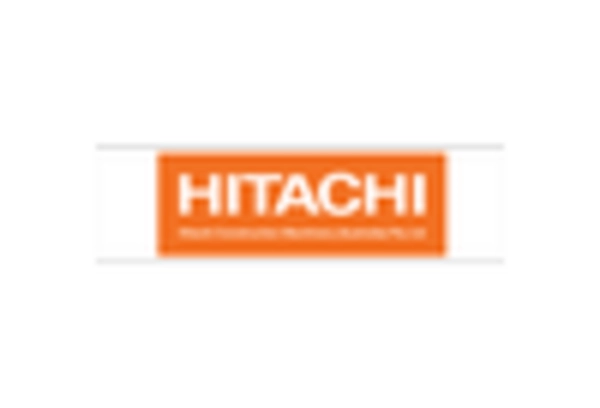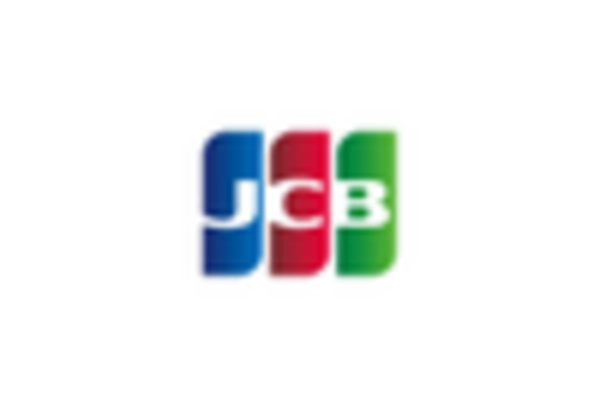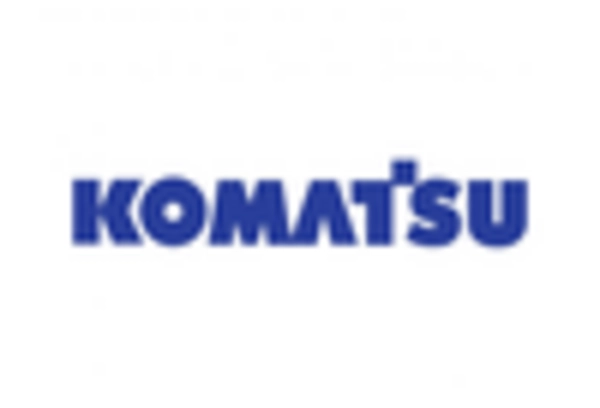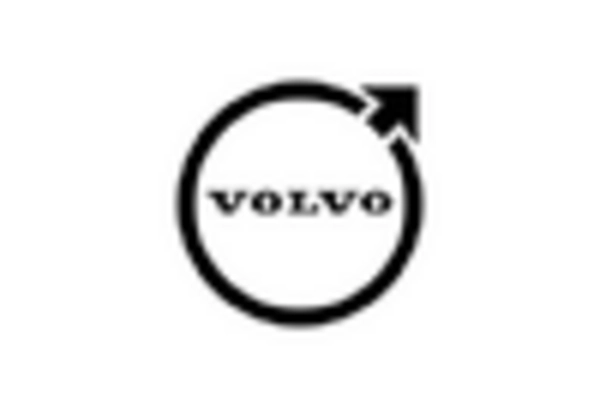Economic Growth and Investment
Economic growth and investment are crucial drivers of the heavy construction-equipment market in Germany. The country has experienced steady economic expansion, with GDP growth rates hovering around 2% annually. This economic stability encourages both public and private investments in infrastructure projects, including roads, bridges, and public transport systems. As of 2025, the German government has committed to increasing infrastructure spending, which is expected to reach €10 billion annually. This influx of capital into construction projects directly correlates with heightened demand for heavy construction equipment, as contractors seek to acquire the latest machinery to fulfill project requirements. The positive economic outlook, coupled with government initiatives, creates a favorable environment for the heavy construction-equipment market, fostering growth and innovation within the sector.
Urbanization and Population Growth
Urbanization and population growth are pivotal factors propelling the heavy construction-equipment market in Germany. As urban areas expand, the demand for infrastructure development, including residential, commercial, and transportation projects, escalates. The German population is projected to reach approximately 84 million by 2025, necessitating the construction of new housing and public facilities. This surge in urban development creates a robust demand for heavy construction equipment, as contractors require advanced machinery to meet project timelines and quality standards. Additionally, the trend towards smart cities and sustainable urban planning further fuels the need for innovative construction solutions. The heavy construction-equipment market is thus positioned to benefit from these demographic shifts, as companies invest in modern machinery to enhance productivity and efficiency in urban construction projects.
Regulatory Compliance and Standards
The heavy construction-equipment market in Germany is significantly influenced by stringent regulatory compliance and standards. The government mandates adherence to safety, emissions, and operational efficiency regulations, which necessitates the adoption of advanced technologies and equipment. As of 2025, the market is witnessing a shift towards equipment that meets the latest EU emissions standards, which are becoming increasingly rigorous. This regulatory landscape compels manufacturers to innovate and upgrade their machinery, thereby driving demand for new equipment. Furthermore, compliance with safety regulations ensures that construction sites operate within legal frameworks, reducing liability risks for companies. The emphasis on regulatory adherence not only enhances operational safety but also promotes environmental sustainability, aligning with broader societal goals. Consequently, the need for compliance is a pivotal driver in shaping the heavy construction-equipment market in Germany.
Technological Integration and Automation
Technological integration and automation are reshaping the heavy construction-equipment market in Germany. The adoption of advanced technologies such as telematics, IoT, and AI is enhancing operational efficiency and productivity on construction sites. As of November 2025, a significant portion of construction companies is investing in automated machinery that can perform tasks with minimal human intervention. This trend not only reduces labor costs but also improves safety by minimizing human exposure to hazardous environments. Furthermore, the integration of data analytics allows for better project management and equipment maintenance, leading to reduced downtime and increased profitability. The heavy construction-equipment market is thus experiencing a transformation driven by the need for efficiency and safety, as companies leverage technology to optimize their operations and meet the demands of modern construction projects.
Sustainability and Environmental Considerations
Sustainability and environmental considerations are increasingly influencing the heavy construction-equipment market in Germany. As awareness of climate change and environmental degradation grows, construction companies are under pressure to adopt eco-friendly practices. This shift is prompting manufacturers to develop equipment that minimizes environmental impact, such as electric and hybrid machinery. By 2025, it is anticipated that the market for sustainable construction equipment will grow by approximately 15%, reflecting a broader trend towards green construction practices. Additionally, government incentives for using environmentally friendly equipment further stimulate demand. The heavy construction-equipment market is thus adapting to these sustainability imperatives, as companies strive to align their operations with environmental goals while maintaining competitiveness in a rapidly evolving industry.


